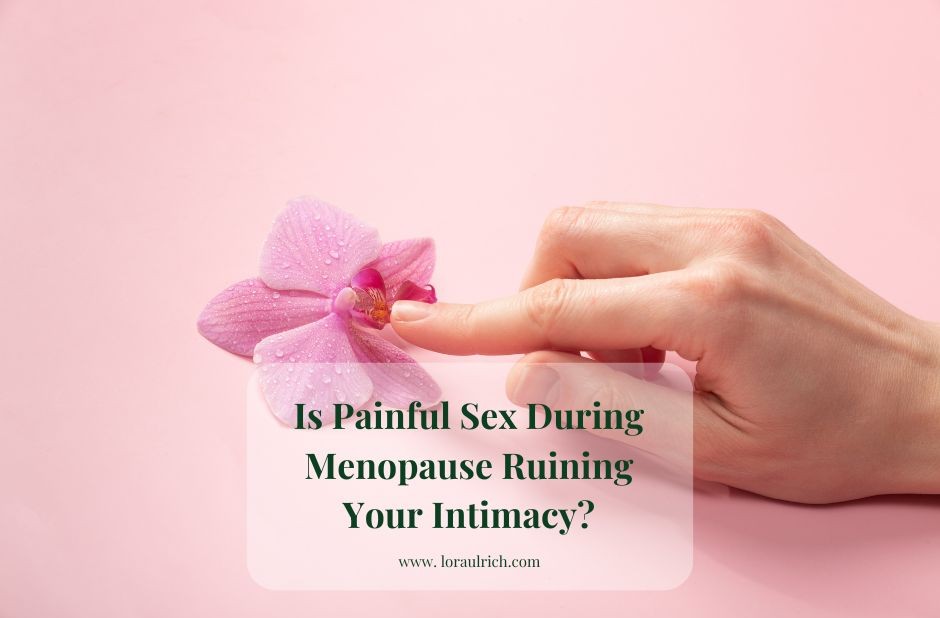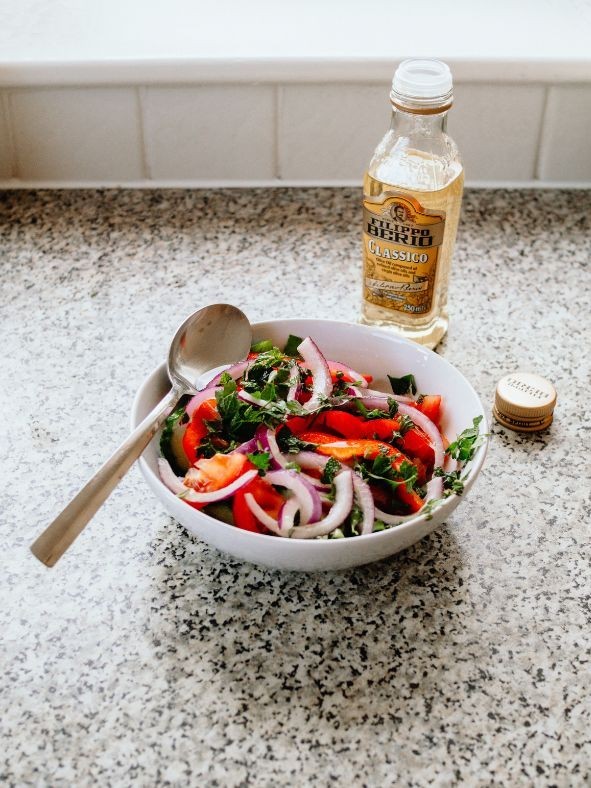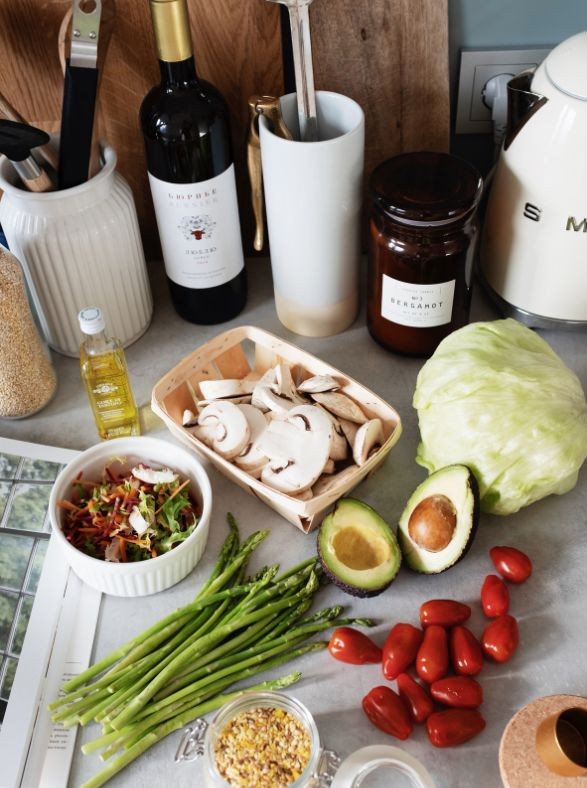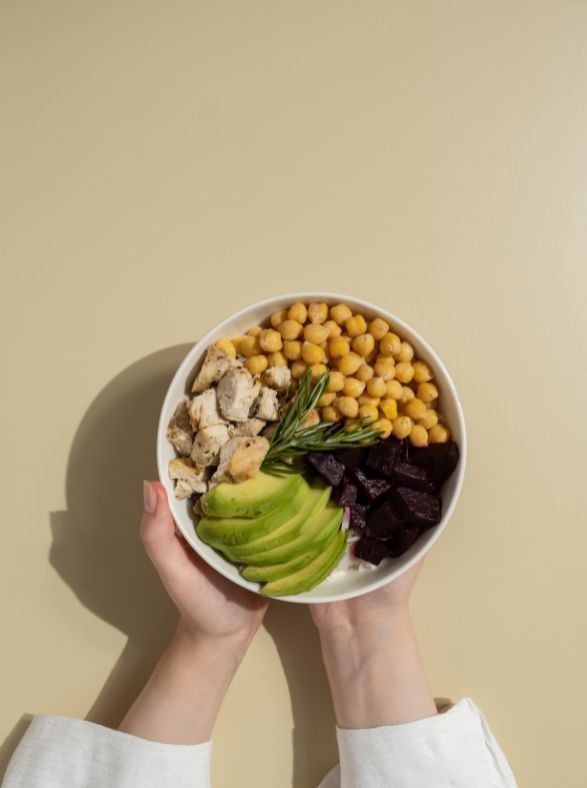
Sex should never feel like a punishment, but for many women navigating menopause, intimacy becomes a source of discomfort rather than connection. If you’ve been quietly wondering what happened to your libido, why sex now stings, or why you feel disconnected from your body, know this: there’s nothing wrong with you.
What Causes Painful Sex During Menopause?
During menopause, estrogen levels decline dramatically. Estrogen keeps the vaginal tissues plump, moist, and elastic. Without it, the vaginal walls can become thin, dry, and less flexible. This condition is called Genitourinary Syndrome of Menopause (GSM), and it’s a key contributor to painful sex during menopause.
Other factors include:
- Reduced blood flow to the genitals, making arousal slower and less intense
- Pelvic floor dysfunction, which can make penetration uncomfortable or impossible
- Emotional influences, like anxiety or past trauma, can lead to muscle tightening or heightened pain
Painful sex during menopause is not in your head, but your mental and emotional state can absolutely influence how your body responds.
The Brain-Body Connection
Painful sex doesn’t just hurt physically; it can hurt your confidence, sense of connection, and even your identity. The mind plays a powerful role in sexual response. When worry or shame enter the equation, our bodies often tighten, resist, or shut down altogether.
Healing isn’t just physical – it’s emotional, hormonal, relational, and personal.
How To Ease Painful Sex During Menopause
You deserve pleasure that feels good, not just tolerable. Here’s what you can explore:
- Use vaginal moisturizers regularly, not just during intimacy. They help replenish hydration long-term.
- Try high-quality lubricants to reduce friction (silicone-based options tend to last longer).
- Explore localized estrogen therapy, such as vaginal creams or rings prescribed by your doctor.
- Consult a pelvic floor physical therapist – these specialists work wonders in restoring comfort and confidence.
- Rethink foreplay – slow things down, increase arousal time, and communicate openly with your partner.
Maintain a Healthy Diet to Support Vaginal and Hormonal Health



What you eat can directly influence how your body responds to hormonal shifts, inflammation, and tissue repair – all of which play a role in painful sex during menopause.
Here’s how a healthy diet can help:
- Boosts estrogen-like effects naturally: Foods rich in phytoestrogens like flaxseeds, chickpeas, and lentils, can gently mimic estrogen and support vaginal moisture.
- Reduces inflammation: Omega-3 fatty acids found in fatty fish (like salmon), walnuts, and chia seeds help reduce inflammation, which may ease pelvic discomfort.
- Supports tissue repair and hydration: Vitamin A, C, and E (found in leafy greens, berries, avocados) promote collagen production and mucosal health, which are key for vaginal comfort.
- Improves hydration: A diet rich in whole grains, leafy greens, and healthy fats support cardiovascular health, which in turn improves blood flow to the pelvic region – essential for arousal and lubrication.
Explore my collection of healthy and hormone-supportive recipes tailored for menopausal women. Let me know which one you’ll make first! 🥬
FAQs
Is painful sex normal during menopause?
While not every woman experiences pain, many do struggle with discomfort at some point. It’s a common symptom, but it’s not something you have to simply accept.
Are the exercises that ease pain?
Yes. Pelvic floor physical therapy and gentle yoga stretches can improve circulation and help you relax your muscles.
Can diet and supplement play a role?
Anti-inflammatory foods (like berries, leafy greens, turmeric) support overall tissue health. Drawing on my experience as a Menopause Health Coach, I know how vital it is to select the right supplements during this phase. After extensive and firsthand testing, I recommend two standout formulas to support your menopause journey: EstroPro and Stress Relief.
Let’s Talk About Connection
Intimacy isn’t just about what happens between the sheets; it’s about feeling seen, safe, and supported. The pain may also be an invitation to deepen communication with your partner. Vulnerability can be healing; let them in on what you’re experiencing.
Your body isn’t betraying you; it’s asking for compassion. With the right tools, support, and mindset, pleasure can be within reach.
Let’s keep the conversation going. What questions or experiences do you want to share? Drop a comment below or share anonymously. Your story matters, and someone out there needs to hear it.
For weekly empowerment, insights, nutrition strategies, and resources tailored for women navigating menopause, join my newsletter. 📩 Let’s make your inbox a safe space for encouragement, curiosity, and connection.
+ show Comments
- Hide Comments
add a comment